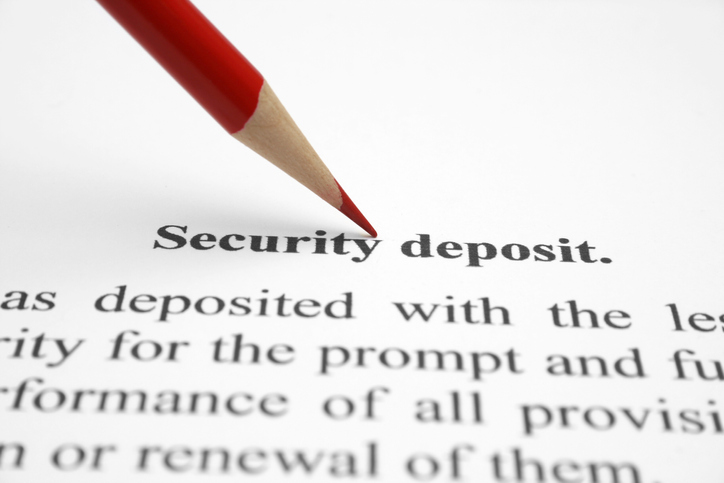
No landlord ever wants to have to deal with a bad tenant who fails to pay their rent, but the chances of it happening go up the longer you manage properties and the more tenants you have. Many landlords struggle with what do in this situation. Some may consider using the tenant’s security deposit to pay for the back rent – but is this something you can legally do? While it might seem justified to refuse to give back their security deposit in lieu of the unpaid rent could cause legal problems for you. To confuse the situation, laws concerning security deposits and how they can and can’t be used vary quite a bit from state to state. Thankfully, there are general rules for landlords to follow that are relatively similar no matter which state you’re in.
What Can the Security Deposit Be Used For?
Typically, landlords collect a security deposit when a tenant moves in to ensure that any damage done to the property during the tenant’s residence there can be repaired without cost to the landlord. If the tenant doesn’t cause any damage, then the security deposit is returned once the tenant moves out. If the property is in bad condition, the landlord may be allowed to deduct the cost of fixing the damage from the security deposit before returning it to the tenant.
In the case that the security deposit was collected for this reason, there are limitations on how the security deposit can be used. These include:
- Unpaid rent
- Unpaid taxes (if the tenant is stated to be responsible for them in the lease)
- Repairs to the property that are beyond normal wear and tear
- Early lease termination (if stated in the lease)
- Excessive cleaning costs to the property
So, as a short answer, yes, you can keep the security deposit to cover unexpected costs that are incurred due to the tenant’s neglect – including unpaid rent. It’s essential to have these stipulations clearly outlined in your lease to avoid any confusion and ensure the tenant has a clear understanding of what their security deposit can be used for.
What Can’t the Security Deposit Be Used For?
It’s also important to understand what a security deposit can’t be used for, so you don’t unintentionally use it illegally. In general, security deposits cannot be used to cover the following:
- The last month’s rent (unless specified in writing in the lease)
- Cleaning costs from normal wear and tear
- Basic repairs caused by normal wear and tear
- Any costs not related to that specific tenant
To avoid slipping up and using the security deposit in one of these prohibited ways, it’s always a good idea to clearly outline in your lease how the security deposit will be used, so you and your tenant have a reference point if there’s any confusion in the future.
Using the Security Deposit for Unpaid Rent
So, you can use the security deposit to cover unpaid rent. That’s often why the security deposit is equal to two months’ worth rent – to cover for a month of unpaid rent. If your tenant moves out or is evicted, you can legally subtract the amount they owe for unpaid rent from the security deposit. You are contractually owed that money, as stated in the terms of the lease. Despite this, some tenants will fight to keep their security deposit, despite being responsible for the amount of the unpaid rent.
If your tenant owes you more than the security deposit can cover, you have the right to evict them or take them to small claims court to receive the money you’re owed. To prevent a legal battle, it’s always a good idea to clearly outline every detail on the rental agreement and make sure the tenant understands the contract completely before the contract is completed. Having the date and initial the section outlining the terms of the security deposit is never a bad idea.
If your tenant does end up owing you for unpaid rent, take the following steps to ensure you’re not giving back more of the security deposit than you need to:
- Check the terms of your lease
- Subtract the amount of money owed from the security deposit before you return it
- File a case in small claims court if there’s any additional money owed that wasn’t covered by the security deposit
Following these guidelines will help prevent the security deposit from being used unlawfully and ensure that you receive any money you’re owed due to the tenant’s neglect.
Landlords Property Managers Contact TSCI